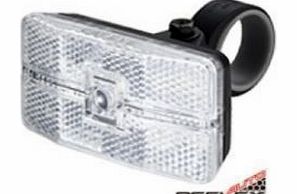

The AMPP range continues this, from the 400-lumen AMPP 400 up to the 1,100-lumen AMPP 1100. With two factories still located in the country, CatEye has built a reputation for reliability and optical excellence.

Since then it has been refining its products, which are rigorously tested using the same methods employed by the Japanese car industry. Instead, grab yourself some extra reassurance in the form of one of CatEye’s new AMPP lights, and make the most of the night.įounded in 1954 in Osaka, Japan, CatEye created the world’s first bicycle LED headlamp back in 2001. But that’s no reason to cut back on cycling.

You may have trouble looking at certain LCD screens through polarized lenses, however.With the number of daylight hours shrinking fast, you’ll find yourself out in the dark more and more often. Since it’s so much nicer to look through polarized lenses, and they’re available on some sunglasses that are as cheap as non-polarized options, there’s no reason to skip this feature.

But as Ellen Koo, MD, told us, “Different color tints can serve different types of advantages. Lenses: Lens color is primarily a matter of style and preference.If you see three numbers there, the first number is the horizontal width of the lens in millimeters. If you’re trying to decide what frames might fit your face, check the inside arm of a pair you already like. Models that offered a variety of color combinations to suit more people’s preferences were great, but we didn’t eliminate glasses that lacked such options. Design: An unsightly logo or brand name emblazoned on your sunglasses can ruin an otherwise great pair of shades (paging the previous design of the Gamma Ray Cheaters, which Gamma Ray has since corrected), so we looked for pairs with a minimal design.In our testing, we found that full-metal hinges helped-the hinges made arms easier to fold and unfold-but we considered models that had plastic hinges, too. Build quality: Even cheap sunglasses should feel solidly constructed and be able to withstand your throwing them into a backpack or onto the backseat of a car.Comfort: Although comfort is hard to evaluate because people’s faces and tolerance for glasses vary widely, we sought frames that were lightweight and pleasant to wear for long periods of time on a variety of face shapes and sizes.Some people are willing to take good care of their shades and pay more for style, excellent build quality, or other bonuses, so we also tested some higher-quality pairs, and for those we set our price cap at $70. Price and value: After speaking to people who tended to break or lose their sunglasses, we decided that a good pair of cheap sunglasses should meet all our other criteria for less than $30.When you shop for sunglasses, always make sure to choose lenses with 99% or 100% UV protection or UV400 labeling (“UV400” means that the glasses block all light rays with wavelengths shorter than 400 nanometers, which is the cutoff for UV light). Goel, MD, told us, when you use lenses without UV protection, you end up allowing more damaging UV rays to enter your eyes than if you were wearing no sunglasses at all, and you leave your eyes vulnerable to a slew of nasty ailments (more on that in the UV protection section).


 0 kommentar(er)
0 kommentar(er)
